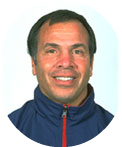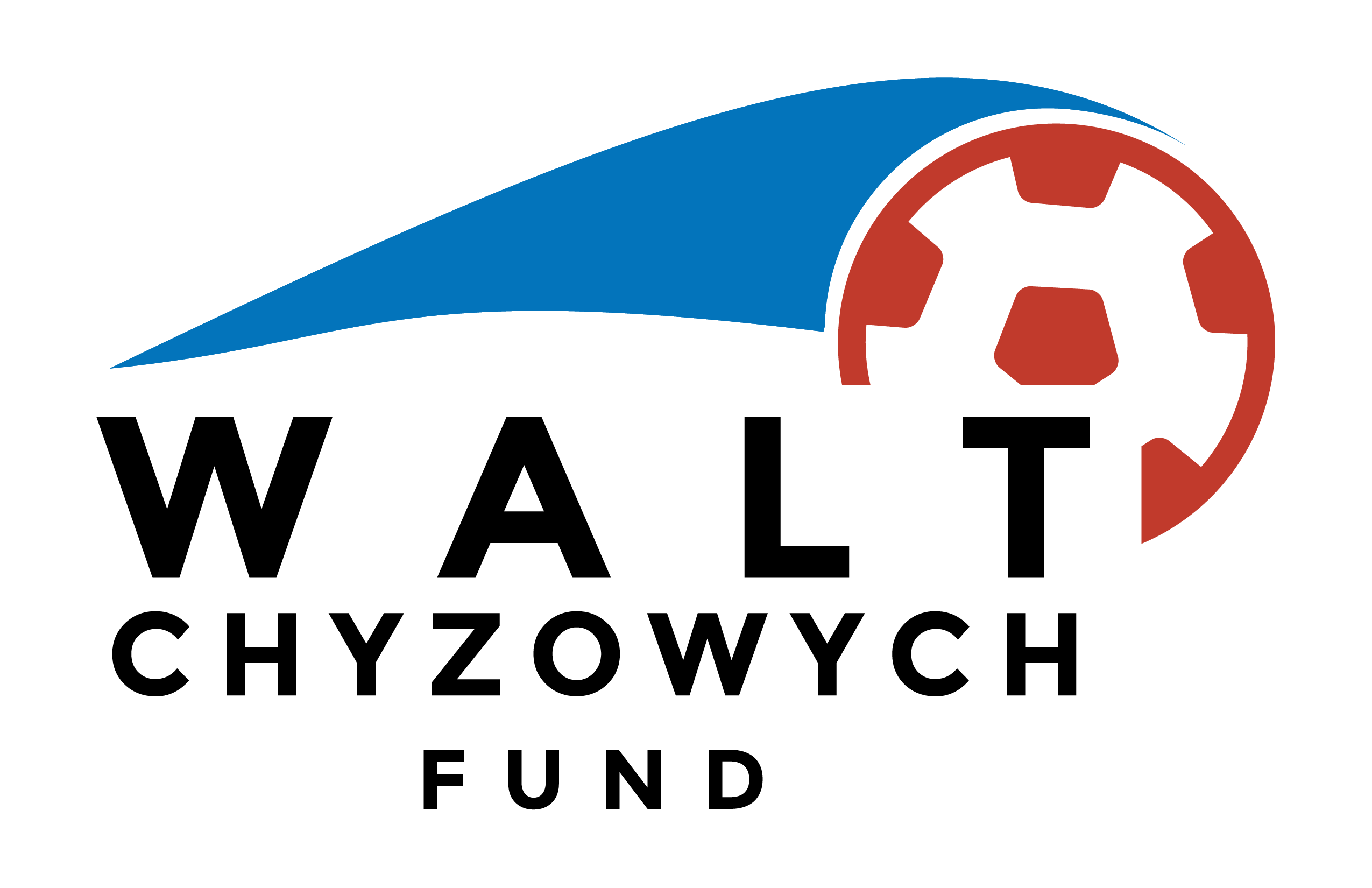
Bruce Arena
2003
When he first took over as head coach of the U.S. Men's National Team at the end of 1998, Bruce Arena was repeatedly quoted saying that the team's only goal was to qualify for the 2002 FIFA World Cup in Korea/Japan. Clearly, he exceeded expectations.
During a four-year tenure in which he would become the winningest coach in team history (33 wins, 18 losses, 15 ties), Arena guided the U.S. World Cup squad to an historic quarterfinal finish in the 2002 FIFA World Cup in Korea/Japan that captured the hearts of the American public and alerted the world that the United States is an emerging soccer force.
The USA's unprecedented journey began with the shock 3-2 defeat of heavily favored Portugal, Arena's system of high pressure defense and quick counter attacks resulting in an early 3-0 lead. The U.S. next rose to the challenge against the motivated host nation and one of the most intimidating "12th man" atmospheres in sports, earning a hard fought 1-1 draw with Korea.
Despite a difficult 3-1 loss to Poland in the final match of group play, the United States advanced to the Round of 16, where the USA's fiercest rival awaited.
Meeting Mexico in any match inspires heated passion on both sides, but to encounter the neighbors to the south in a match of such significance raised the stakes that much higher. Even President Bush got into the act, calling the President of Mexico before the match and expressing confidence in a favorable outcome for the USA. In the most important game for U.S. Soccer in modern history, Arena's coaching brilliance shone. Deploying an altered formation and shifting the position of team captain Claudio Reyna, the U.S. had the Mexicans off balance from the opening whistle. Brian McBride's perfectly placed strike in the 8th minute set the early tone, and a dogged defensive effort for the remainder of the contest gave the USA a 2-0 victory and a place in the quarterfinals for the first time in 72 years. The American public, indeed the world, took notice.
The USA would fall to Germany 1-0 in the quarterfinal round, although most pundits and fans agreed that Arena's side had been the better team on the day. In spite of the loss, the USA had turned in an unprecedented performance in Korea. With Arena at the helm, no longer would the United States be considered a second rate soccer nation.
The road to Korea had begun some two years earlier. Challenging his team with a vast array of diverse opponents to help prepare them for the rigors of World Cup qualifying, the USA's preparation included victory at the 2000 Nike U.S. Cup in Mexico in 1999. In 2002, preparation for the actual World Cup began with a stirring championship victory in the CONCACAF Gold Cup.
In qualifying, the U.S. had its ups-and-downs in both the semifinals and finals, but rose to the challenge at every turn. After opening the semifinal round of qualifying with two tough road games, Arena and his players found their stride, taking ten of a possible 12 points from the final four games and finishing ahead of Guatemala, Costa Rica and Barbados in first place in Group E. The final round saw a reversal of fortune, with the U.S. jumping out to an early lead in the six-team group with four wins and a draw in their first five games. After an unprecedented three straight defeats, Arena guided the team to the win they needed (over Jamaica on Oct. 7, 2001), enabling the U.S. to qualify for Korea/Japan with a game to spare.
Prior to the rigors of 2001 final round qualifying, the U.S. had arguably their best year ever in 2000, compiling a stellar 9-2-26 record and outscoring their opposition by a team-record 23 goals. The team also set a new American standard for shutouts in a year with nine, and twice shutout arch rival Mexico, outscoring them 5-0 in two meetings.
Much as he did when he took over in October 1998, Arena continued to utilize Major League Soccer players as well as the usual collection of overseas American professionals to build his squad. With the continued development of the USA's top domestic league producing better players in greater numbers every year, the 50-year-old Brooklyn native has shown a keen ability to select the best players to suit each individual game.
With 18 seasons under his belt as the head soccer coach at the University of Virginia and three more in Major League Soccer with DC United, Arena spent 21 seasons at the highest levels of club soccer in the United States. He also guided the U.S. Under-23 National team for 44 games through the 1996 Summer Olympiad in Atlanta.
With the Olympic team, Arena was widely credited with accelerating the development of a number of U.S. National Team players, including midfielder Claudio Reyna and defender Eddie Pope, both of whom became eventual starters on the USA's 1998 World Cup Team.
When Arena took on the professional challenge of guiding DC United and the Under-23 National Team, it brought to a close an 18-year career as head soccer coach at the University of Virginia where he built the program into a perennial powerhouse, winning five NCAA Division I championships while amassing a record of 195-58-32. His winning percentage (.808) at UVa ranks among the best ever in collegiate sports, surpassing even legendary UCLA basketball coach John Wooden (.804). Arena took over the soccer program at Virginia upon his arrival in Charlottesville in 1978 from Cornell University in Ithaca, NY, where he was an assistant lacrosse coach. Virginia eventually appeared in 15 consecutive NCAA tournaments, won the NCAA title five times (including four consecutive from 1991-1994), and dominated the Atlantic Coast conference by winning the conference regular season and tournament titles numerous times.
Until he relinquished his duties in 1985 to focus entirely on soccer, Arena was also an assistant men's lacrosse coach at UVa. Arena was an All-American in lacrosse at Cornell University, where he graduated in 1973. He earned All-American honors in both soccer and lacrosse while attending Nassau Community College from 1969 to 1971. His experience also extends to the playing field, where he competed professionally in lacrosse with the Montreal Quebecois in 1975. A year later he played professionally for the Tacoma Tides of the American Soccer League. In 1973, Arena earned a cap for the U.S. as a goalkeeper in a 2-0 loss in Israel.
Personal: married to Phyllis, the couple have one son (Kenny) and reside in Fairfax, VA...Is a past chairman of the ACC soccer coaches and served two three-year terms on the NCAA Division I soccer committee from 1989 to 1995...Attended Nassau Community College (1969-1971) and Cornell University (1971-1973). ... Born September 21, 1951 in Brooklyn, NY...Collegiate Soccer Coaching Career: Assistant coach, Cornell University (1973); Head coach, University of Puget Sound (1976); Head coach, University of Virginia (1978-1995)....Playing Honors: All-American in soccer and lacrosse at Nassau C.C.; All-American in lacrosse at Cornell; Most Valuable defensive Player, NCAA Division 1 Soccer Championships (1972)....Coaching Honors: 1997 MLS Coach of the Year; 1997 and 1998 MLS All-Star head coach....International Experience: One full camp with U.S. Men's National Team (as a substitute on Nov. 15, 1973, in a 2-0 loss to Israel in Beersheba, Israel)....Head coach of the U.S. Under-23 National Team which competed in the 1996 Olympics....Led DC United twice to the CONCACAF Champions cup (losing in the semifinals in 1997 and winning it all in 1998); also won the carnival of Champions in Hong Kong and was runner-up in the Sanwa Bank Cup in Japan, both in 1997....Won Interamerican Cup with DC United over Vasco da Gama in 1998.
--Press Release, December 2002
